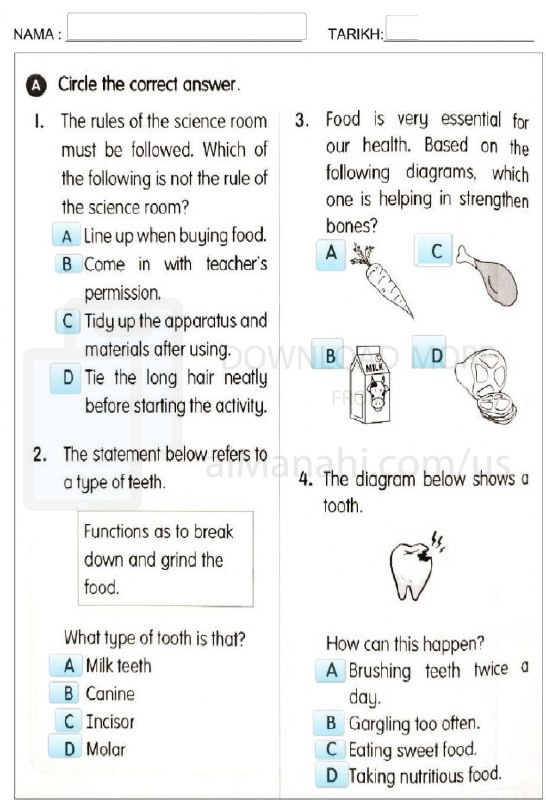| File info: Worksheet for Science Summative Assessment for Grade 3
This worksheet is designed to assess students' understanding of the science concepts they have learned in grade 3. The worksheet consists of a variety of questions, including multiple choice, short answer, and essay questions.
Multiple Choice Questions
Multiple choice questions are a good way to assess students' knowledge of basic facts and concepts. These questions typically have four or five answer choices, and students are asked to select the one answer that is correct.
Short Answer Questions
Short answer questions are a good way to assess students' understanding of more complex concepts. These questions typically require students to write a brief response, such as a definition, a description, or an explanation.
Essay Questions
Essay questions are a good way to assess students' ability to think critically and communicate their ideas clearly. These questions typically require students to write a longer response that provides evidence to support their claims.
Specific Questions
The following are some specific questions that could be included on a worksheet for science summative assessment for grade 3:
Multiple Choice: Which of the following is a plant organ?
Short Answer: What is the difference between a seed and a fruit?
Essay: Explain the process of photosynthesis.
Grading
The worksheet will be graded on a scale of 100. The specific grading criteria will vary depending on the type of question. For multiple choice questions, each correct answer will be worth one point. For short answer and essay questions, the answers will be graded according to a rubric.
Tips for Students
To prepare for a science summative assessment, students should review the following topics:
The scientific method
The different types of matter
The properties of matter
The states of matter
The phases of matter
The properties of energy
The different types of energy
The transfer of energy
The different types of forces
The forces of nature
The different types of organisms
The parts of an organism
The life cycle of an organism
The different types of ecosystems
The interactions between organisms and their environment
Tips for Teachers
To create a worksheet for science summative assessment, teachers should consider the following:
The content standards that students are expected to know
The different types of questions that can be used to assess student understanding
The grading criteria that will be used to assess student responses
By following these tips, teachers can create worksheets that are effective at assessing student understanding of science concepts. |
